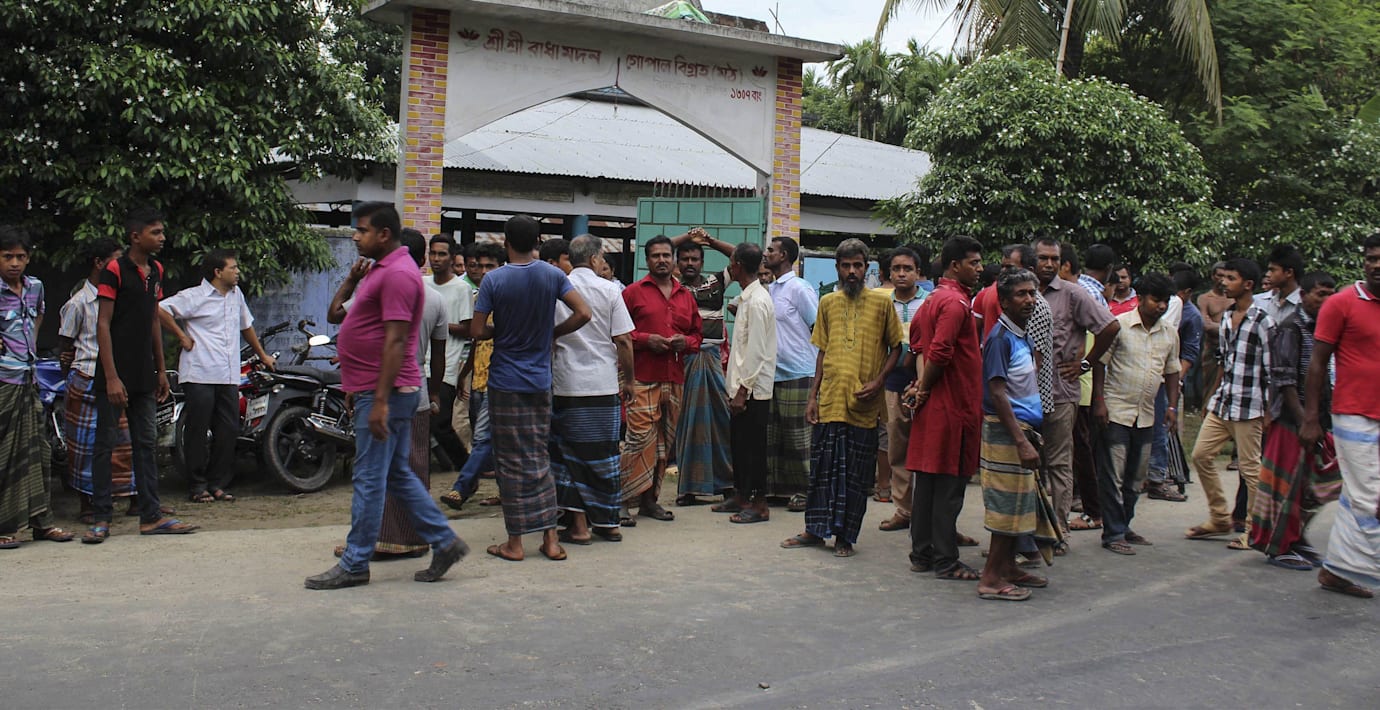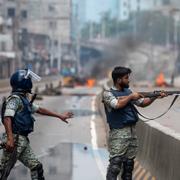
Präst samlade blommor – mördades med machete
En 52-årig präst dödades på fredagen med machete i distriktet Jhenaidah i Bangladesh, rapporterar CNN. Händelsen är den senaste i en lång rad av misstänkt religiöst motiverade mord. Även akademiker och sekulära bloggare har drabbats av våldet.
Enligt vittnesuppgifter ska prästen ha samlat in blommor, troligtvis till en böneceremoni i det hinduiska templet, när tre män kom på motorcykel och attackerade honom.
Det är andra gången på en månad som en präst dödas i samma område. Den 7 juni mördades en 70-årig präst när han var på väg till templet. Terrorgruppen IS hävdade att de låg bakom det första mordet. Ingen grupp har tagit på sig fredagens dåd.
bakgrund
Islamistiska extremistmord i Bangladesh
Wikipedia (en)
Since 2013, a number of secularist and atheist writers, bloggers and publishers in Bangladesh have been killed or seriously injured in attacks that are believed to be perpetrated by Islamist extremists. The attacks have taken place at a time of growing tension between Bangladeshi secularists, who want the country to maintain its secularist tradition of separation of religion and state, and Islamists, who want an Islamic state. Tensions have also risen as a result of the country's war crimes tribunal, which has recently convicted several members of the opposition Islamist Jamaat-e-Islami party for crimes committed during Bangladesh's bloody war of independence in 1971.
Secularists were calling for harsher penalties for the convicted, with some calling for the Jamaat-e-Islam party itself to be outlawed, drawing the ire of the party's supporters. Responsibility for the attacks on secularists which have since occurred have been claimed by a number of militant groups including Ansarullah Bangla Team, who have frequently justified their attacks on the grounds that their victims are "atheists" and enemies of Islam. Four bloggers had been killed in 2015, but only 4 people were arrested in the murder cases. Others killed in similarly public and grisly ways include university teachers, foreigners, religious leaders, and minority groups such as Shias and Hindus.
The Bangladeshi government was criticized for its responses to the attacks, which included charging and jailing some of the secularist bloggers for allegedly defaming religious groups—a strategy seen as pandering to hardline elements within Bangladesh's majority Muslim population who form about 89% of the total population. The government's eventual crackdown in June 2016 was also criticized for its heavy-handedness, as more than 11,000 people were arrested in little more than a week (as of 18 June 2016).
Jhenaidah
Omni är politiskt obundna och oberoende. Vi strävar efter att ge fler perspektiv på nyheterna. Har du frågor eller synpunkter kring vår rapportering? Kontakta redaktionen


